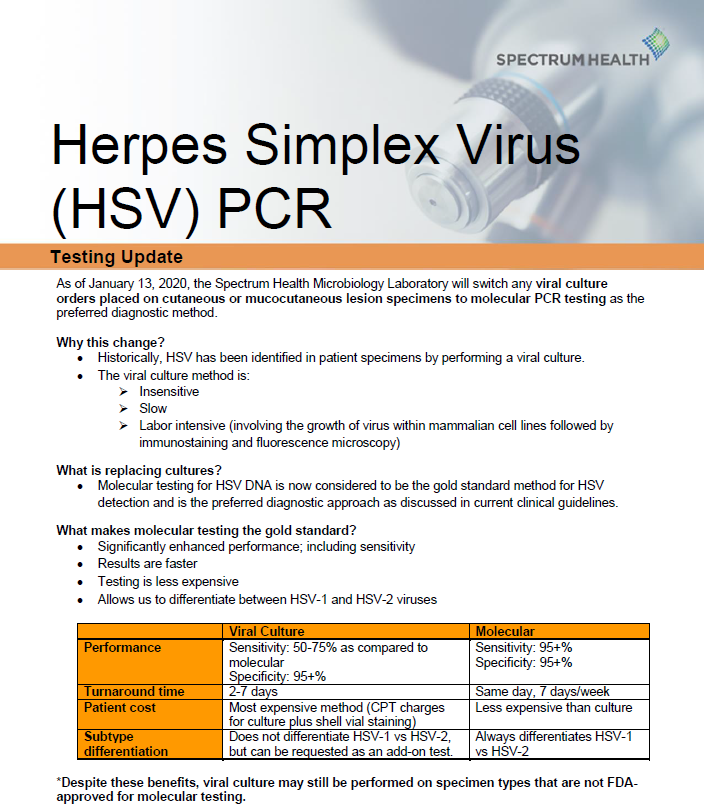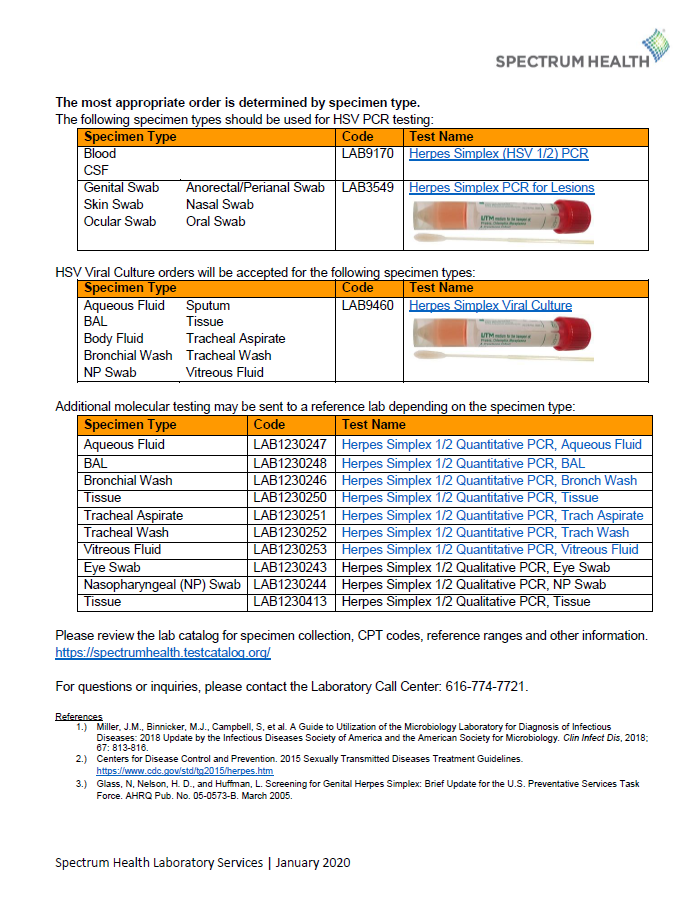Self-collected vaginal swabs may be used for testing as opposed to provider-collected swabs. Self-collected swabs are supported by current clinical guidelines as recent studies have shown their equivalence, if not superiority, in quality and their association with increased patient satisfaction.
NOTE: Self-collection must still take place in a healthcare setting and is not approved for at-home collection.



